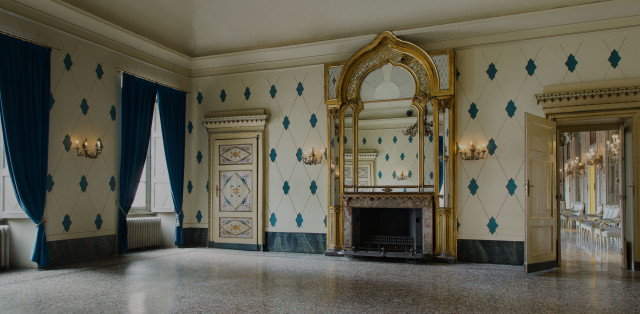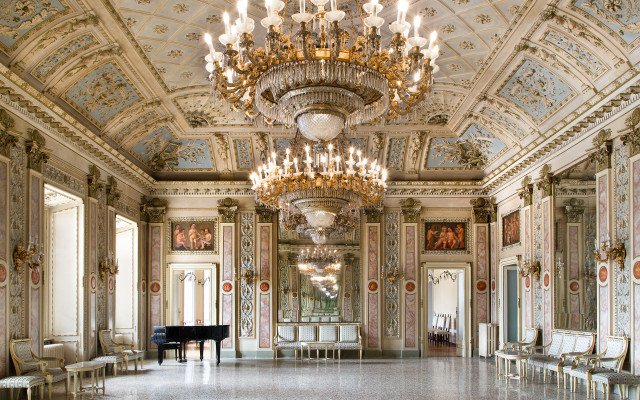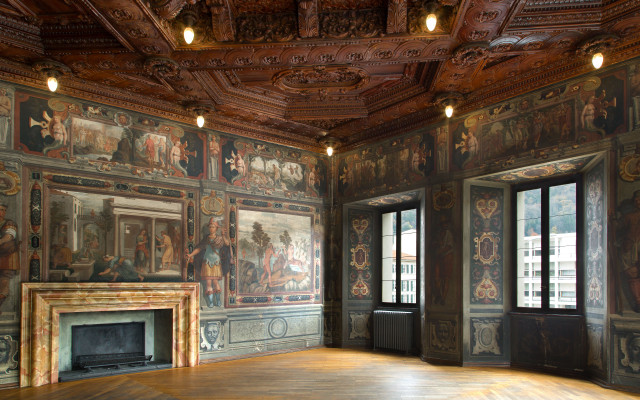Photography by Francesco Arena
The Ridotto of the Teatro Sociale in Como is located in the heart of the city on the first floor of the theatre that was first opened in 1813. Its halls make up the historic foyer which was used to host the owners of the boxes during the intervals in the shows, whether prestigious chamber concerts or those most elegant of Lake Como receptions.
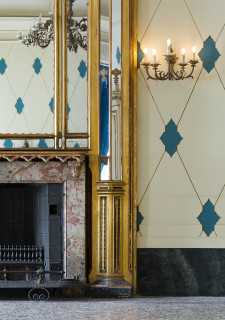
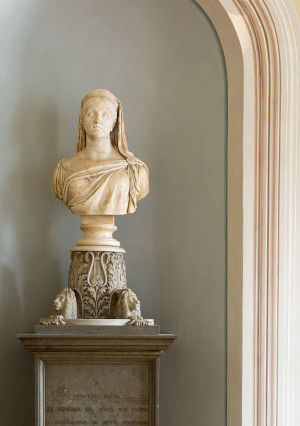
The Teatro Sociale was commissioned by the Società Palchettisti founded in 1764, and overlooks the iconic Piazza Verdi which is framed by four fine buildings representing the city's main eras: the Torre Pantera of the Middle Ages, the Renaissance and Baroque Cathedral, the Teatro Sociale in Neoclassical style with its Belle Époque foyer that is the Ridotto, and the former Casa del Fascio of the Rationalist period.
Since its foundation, the Società Palchettisti has involved itself in a whole range of cultural entertainments, fostering and developing synergies with local, national and international associations and institutions.
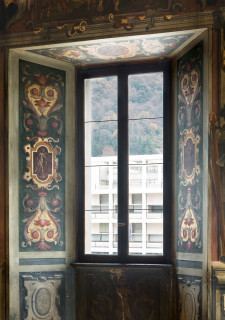
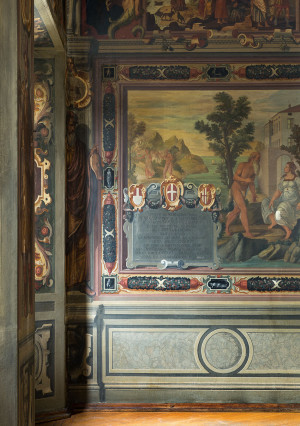
In recent years the Society has conceived and organised numerous cultural initiatives in the Ridotto of the Teatro Sociale, confirming the venue as an ideal place for scientific and for popular conferences. It thus also resumes its vocation for openness to the city’s community with events that seal the Ridotto’s role as cultural and artistic hub for Como. The Sala Bianca and other rooms are also open for private ceremonies, conferences and business meetings, convivial dinners, photo shoots, film shoots and advertising videos.
The Società Palchettisti del Teatro Sociale di Como was established in 1764 with the aim of creating a place of culture open to the city and its surrounding areas. Since its foundation and through the work of its members, the Società Palchettisti has participated in the events of the city and more broadly of Europe, nurturing the ideals of the Risorgimento and contributing to the development of a liberal and republican Italy. Alessandro Volta, Giovan Battista Giovio, Giovanni Pietro Porro, Ugo Foscolo, Stendhal, Giuditta Pasta, Vincenzo Bellini, Franz Liszt are just some of the figures in European culture who have contributed to making the Teatro Sociale one of the most vital theatres in Italy.

